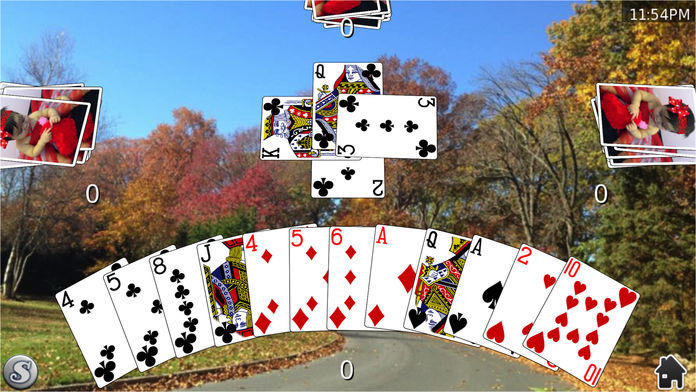
Card Shark doesn't just teach you stuff that will get you killed in Vegas, it manages to get at that fascinating paradox underlying the whole enterprise: it takes hard work and practice and skill to get good at cheating people. Dexterity comes into it, memory and speed of movement and the ability to keep an eye on people who are in turn keeping an eye on you. All of these bits of business are dealt with through manipulations of the thumbstick and a few timed button presses, but as one technique slots together with another - a glimpse of someone's hand married with the signal of what you've seen as an early example - it starts to feel like a complex technical, mechanical, psychological process, which is exactly what it would be if you actually had the cards themselves. Its tricks are built up incrementally from a range of pieces - sneaking looks while pouring wine, signalling cards to an accomplice, palming, loading decks, false shuffles, and more complex card control. The second response is that while Card Shark can't give you 52 cards to move around in your hands, it has a deep rigour that almost balances this out. It plays out in the wide master, but also with these brilliant moments in which you see the hands, huge and quick. What lingers most is that this is a game with close-ups and inserts.
Card shark collection reviews windows#
Candlelight is a bloom of reds and purples soaking into the surroundings, while columns and windows and vaulted ceilings are all dealt with by brisk pen-stroke pedantry, a sketch on the fly: the disciplined eye and the wild mind. Characters bend at fixed joints like delicate two-dimensional puppets in a children's theatre. Skies have delicate whorls and furrows that might put you in mind of the filigreed etching of old money. The first is the visual design, which uses monoprinting and - I think - watercolours, along with some lovely Noggin-the-Nog style animation to deliver an overwhelming sense of a world that is itself made of paper. What to do?Ĭard Shark has two responses to this. If I'm playing a game about card trickery, part of me wants to have the feel of the cards in my hand. The shuffle, the flourish, the pedantic squaring of the pack - these are beautiful aspects of cards that cannot easily be conveyed in a digital medium, and that's before you get to the corrugated purr of a really good card spring or the lightning snap of an ace hitting the table. Sleights and trickery! One of the problems facing Card Shark is that cards themselves are inordinately charismatic things. Then you encourage your marks to give all their money to you, ensuring you raise your bets incrementally so as not to make them skittish, and trying to keep your sleights and trickery out of view. As you progress through the story you learn new techniques for making the cards flow in your favour - learn and learn and learn there is so much learning in this game right until the end, and it might be the boldest thing about the design. You learn as much as you can about the mystery that surrounds you, and you try to work out who amongst your compatriots can be trusted.īut the main action always plays out at a card table. In the adventure you choose where to go as France slowly opens up to you. Chasing the threads of a conspiracy, you and a handful of friendly thieves must work your way through the stacked deck of high society, finding the aces as you go. The setting is eighteenth century France with its wigs and corruption and candlelit intrigue. It's a game about tricks, but you're in a world of con artists rather than magicians. It's a game about card games, but it isn't a card game itself - not really. Suddenly you have two hands, as it were, and that feels like at least one too many. Suddenly there's sweat where there shouldn't be sweat.

You learn, you practice, and then you perform - but suddenly the cards feel weird and seem to want to stick together. This is a good part of the appeal of Card Shark, I think.

It all works beautifully.Īnd then you try the trick in front of other people and it completely falls apart.

The flex and flow of the cards is deeply pleasing to your soul. Alone, on the sofa, by a window, perched in front of a mirror like you're supposed to do it, you practice and practice. You find a pack of cards, get them comfortable in your hand, make sense of the weird diagrams again - they seem to have changed now you have actual cards to hold - and then? Then you practice. You look it up in a book, make sense of the weird diagrams, and get it all semi-straight in your head. A game about card games is also a rigorous primer in the intersection of crime and magic.


 0 kommentar(er)
0 kommentar(er)
